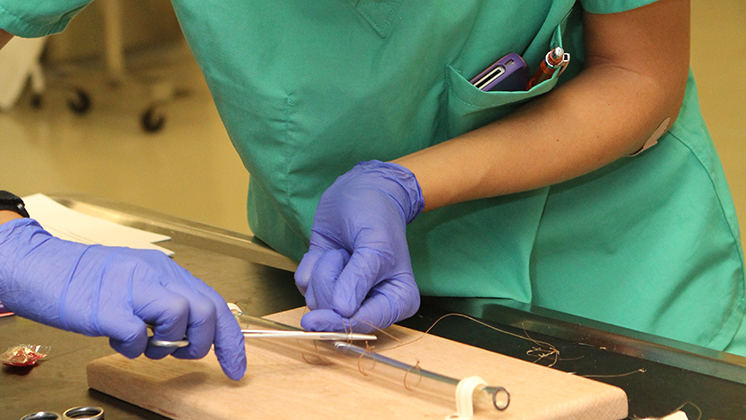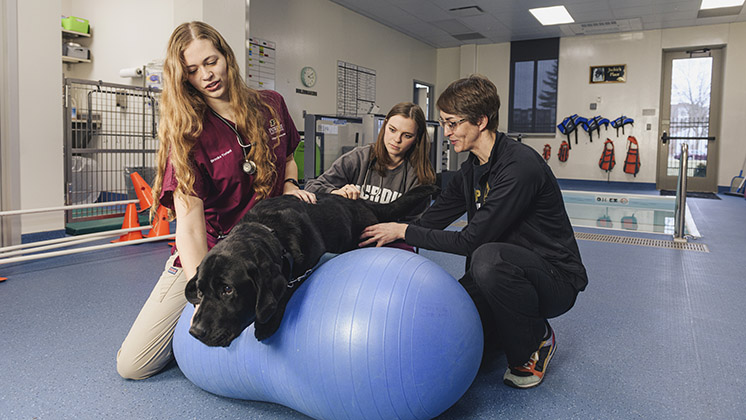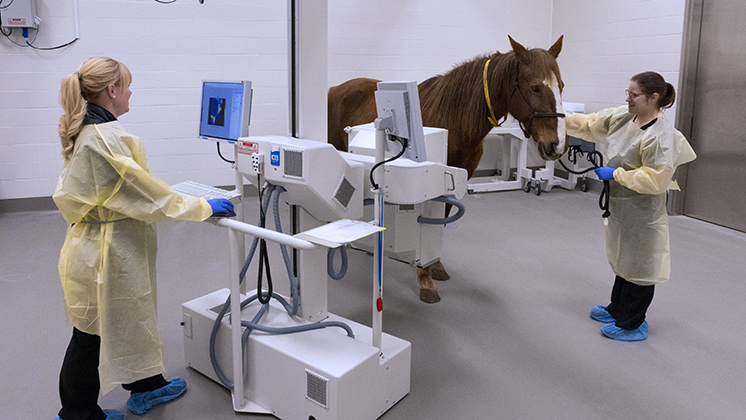What is the VTNE and Why Does It Matter?

by Kelsey Wirt, MS, LVT and Josh L. Clark, MS, RVT
Choosing a career as a veterinary technician or veterinary nurse is a fulfilling path for those passionate about animal care and veterinary science. If you're aspiring to join this profession, understanding the Veterinary Technician National Exam (VTNE) is crucial. Passing the VTNE is the only way for you to become a credentialed veterinary technician/nurse.
What is the VTNE?
The VTNE is a standardized test administered by the American Association of Veterinary State Boards (AAVSB). This exam is designed to evaluate the competency of entry-level veterinary techs/nurses. It's a required step for those seeking to become credentialed and professionally recognized in this field.
The VTNE consists of 170 multiple choice questions that cover a wide range of topics, including pharmacology, surgical nursing, dentistry, laboratory procedures, animal nursing, diagnostic imaging, and anesthesia. In order to be eligible to take the VTNE, most states require that candidates be graduates of a veterinary technology program accredited by the American or Canadian Veterinary Medical Association (AVMA-CVTEA or CVMA).
Why Does the VTNE Matter?
Passing the VTNE is a prerequisite for becoming a credentialed veterinary technician. In addition to a passing score, other states may require additional steps or testing to become officially licensed, certified, or registered as a veterinary technician. This also ensures that veterinary technicians possess a standard foundation of the necessary knowledge and skills to provide high-quality care for their patients and clients. Because of this, credentialing is vital for employment in most veterinary practices, specialty clinics, and other animal care facilities. Purdue’s veterinary technology programs have a proven track record of preparing you to pass the VTNE on your first try compared to the national average.
Personal Growth & Career Advancement
Preparing for and passing the VTNE is a significant achievement that fosters both personal and professional growth. This process shows that you can accomplish challenging tasks and gain confidence in your ability to contribute to animal health and welfare. In addition, becoming a credentialed veterinary technician opens doors to advanced career opportunities and specializations with higher earning potential. Some of these areas of advancement may be in dentistry, anesthesia, emergency and critical care, internal medicine, higher education, research, and more. Read our article about increasing your earning potential as a veterinary technician if you’re interested in learning more.
The VTNE is more than just an exam; it's a gateway to a successful career in veterinary technology. It validates your knowledge and skills, propels your professional growth, and ensures that you can provide the best possible care to animals. Aspiring veterinary technicians should approach the VTNE with diligence and determination, as it is a vital step in achieving your career goals in this field.
Start Your Veterinary Technician Journey
Find your calling as a Purdue Veterinary Technician!
Not quite ready to apply? Connect with us to learn more.
Suggested Articles

How Long Does It Take to Become a Vet Tech/Nurse?
Becoming a veterinary technician requires several steps, each of which takes a certain amount of time. Let's explore the journey and timeline for aspiring vet techs.
Read more
What is the Difference Between LVT and RVT?
Understand the diverse acronyms used to represent veterinary technicians, from LVT to CrVT. Uncover the nuances between these titles, their state-specific usage, and understand that while the acronyms vary, the dedication to animal care remains consistent across all credentialed vet techs.
Read more
How Do I Get a Raise as a Vet Tech?
Discover actionable steps for veterinary technicians to boost their earning potential. From pursuing specialization to effective negotiation, learn how to highlight your value in the veterinary field and advocate for a salary that matches your skills and contributions.
Read more
